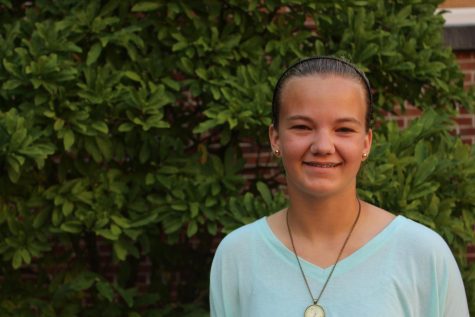Are Schools Preparing Students for Life After High School?
Students after high school do not know how to write a check or keep up a checkbook. Photo courtesy of: By Yinan Chen (www.goodfreephotos.com (gallery, image)) [Public Domain], via Wikimedia Commons
February 8, 2018
Schools in America promote academic excellence and make sure students are prepared for higher level content.
This higher level content and rigorous academic collaboration promotes analytical thinking, decision making and being able to work well in groups.
Even though this may improve test scores, some students still struggle to complete simple tasks such as addressing an envelope or writing a check.
Home economics classes or classes teaching life skills have been dwindling throughout the years due to budget cuts, but this still is no excuse to not prepare students for life after high school.
Students today are equipped well academically for post secondary education, but there is no economic, emotional, or social preparations for jobs or education after high school.
Most millenials or teenagers would rather text or Snapchat than call someone or would rather work alone on a project than with other people to avoid conflict.
Employers today are looking for people who can communicate well, listen well, and manage conflict which is taught generally in each class but not specifically for working jobs.
In addition, most students in college will go into “the real world” in debt from extra schooling or training if they do not know how to budget properly or what specific type of loan they will need, students could be starting their adult life with unstable finances.
Though there are schools, including Susky, that offer finance, business law or other courses, where they zero in on budgets and finances and learn the way businesses and the finances in the world operate and work.
The specific courses offered at Susquehannock that deal with preparing students for life after high school like caring for kids, cooking, budgeting, and other life skills. They include: Child Development, Contemporary Fashion, Creative Design Family, and Society Foods Finance, Your Employability Skills (YES), Entrepreneurship, Work Experience, Marketing, Accounting, Computer Applications, YCAL PreApprenticeship and Think Tank.
These cooking and sewing classes, where one can learn to sew basic materials, cook and bake foods and how to eat healthier are offered as elective classes, and even if requested, enrollment could get denied because there is only one teacher.
The required course that helps the most is Career Seminar because in this class students have mock interviews, write resumes, and learn skills for careers and look at colleges.
Some educators are still persist in their claim that these skills learned and utilized in the classroom are most of the skills that ones need in general.
Then, if the students do not know how to do something, they can just click a button and list of videos or tutorials come up.
So the big question is, should people have to learn life skills on their own, or should schools step in and help students start life after high school on the right foot.
This school should create a course that collectively teaches budgeting or simple finances, communication skills, food preparation skills and other simple skills for life after education.



![Students after high school do not know how to write a check or keep up a checkbook. Photo courtesy of: By Yinan Chen (www.goodfreephotos.com (gallery, image)) [Public Domain], via Wikimedia Commons](https://shscourier.com/wp-content/uploads/2018/01/CHEckbook.jpg)

